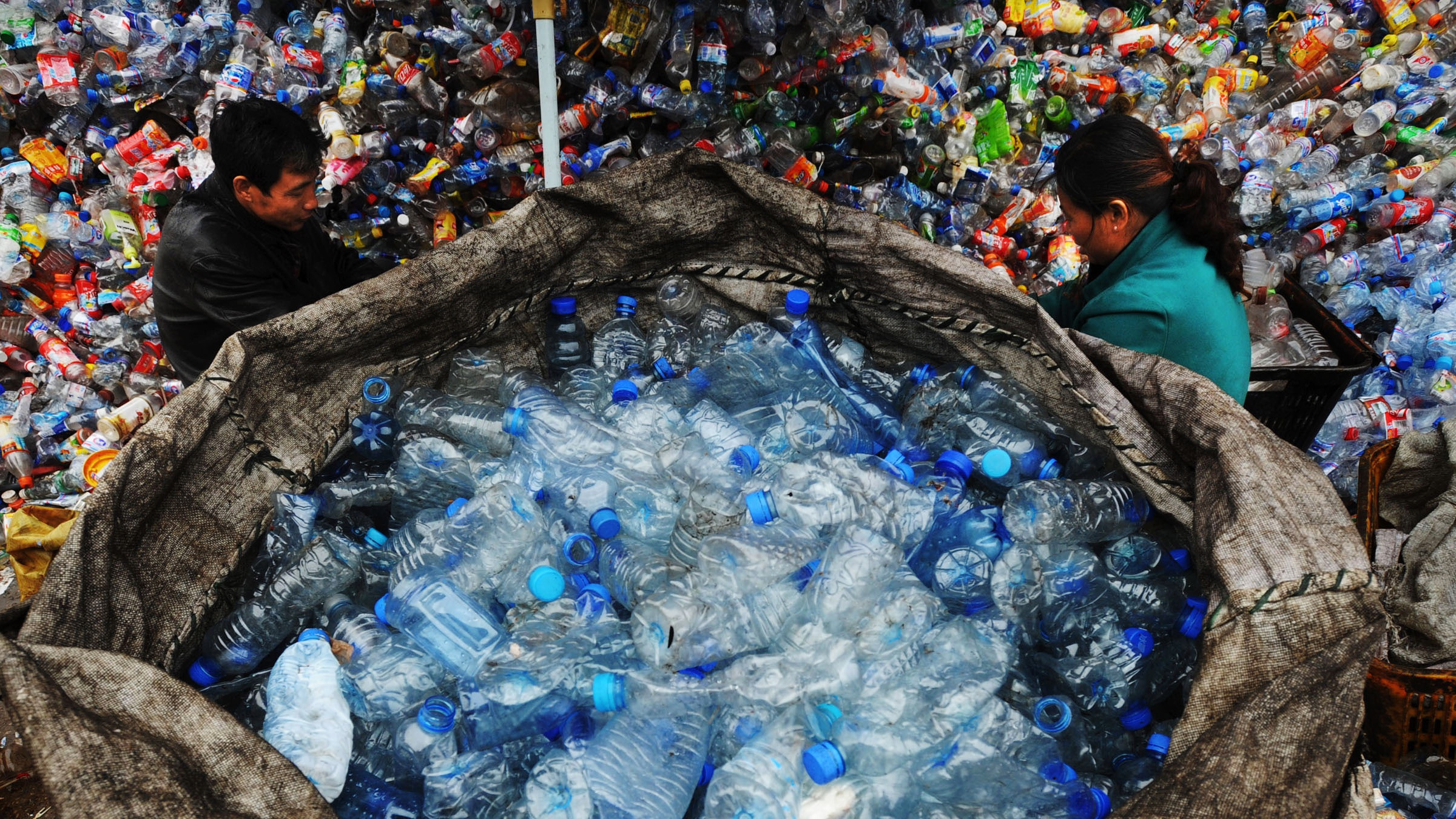Total ban on imports of rubbish to China piles pressure on Asian neighbours
Veto on accepting overseas junk marks culmination of three-year reduction policy

A free daily email with the biggest news stories of the day – and the best features from TheWeek.com
You are now subscribed
Your newsletter sign-up was successful
China is halting all waste imports from overseas to its shores from next month, in a move expected to see foreign countries instead dumping tonnes of rubbish on poorer Asian nations.
Beijing has confirmed that as of 1 January, China will no longer accept “waste plastic, scrap paper, textiles and some other products”, ending exemptions to a partial ban enacted in 2017, The Times reports.
Since the 1980s, China has accepted vast quantities of waste products from foreign nations, with the US, Japan and Germany among the biggest exporters.
The Week
Escape your echo chamber. Get the facts behind the news, plus analysis from multiple perspectives.

Sign up for The Week's Free Newsletters
From our morning news briefing to a weekly Good News Newsletter, get the best of The Week delivered directly to your inbox.
From our morning news briefing to a weekly Good News Newsletter, get the best of The Week delivered directly to your inbox.
Indeed, China has been the “world’s largest importer of rubbish” for years, France 24 reports. Some of this waste has been cleaned, crushed and developed into raw materials for the Asian superpower’s exploding industrialist industry.
But the vast amounts of rubbish deposited on Chinese shores has “often lead to pollution when the materials cannot be recycled or disposed of properly”, the news site continues. Fed up with being “the world’s rubbish bin”, the government began to “close China’s doors to foreign waste” in January 2018.
Three years later, Beijing is poised to implement a total ban on dumping, storage and disposal of waste products from overseas on Chinese territory. The importation of recycled materials processed outside China will still be permitted, however, “so that manufacturers still have access to resources”, says The Times.
China’s solid waste imports have already decreased significantly as a result of the reduction policy. The country imported 13.48 million tonnes of junk last year - a 40% decrease on 2018.
A free daily email with the biggest news stories of the day – and the best features from TheWeek.com
Most of the surplus junk is going to countries in southeast Asia, “where many of the recycling facilities are owned by Chinese companies”, the paper reports.
And following the implementation of the total ban, the flow of rubbish is expected to intensify to poorer nations within China’s immediate orbit, including India, Laos, Malaysia, Vietnam, Thailand, Indonesia and the Philippines.
Joe Evans is the world news editor at TheWeek.co.uk. He joined the team in 2019 and held roles including deputy news editor and acting news editor before moving into his current position in early 2021. He is a regular panellist on The Week Unwrapped podcast, discussing politics and foreign affairs.
Before joining The Week, he worked as a freelance journalist covering the UK and Ireland for German newspapers and magazines. A series of features on Brexit and the Irish border got him nominated for the Hostwriter Prize in 2019. Prior to settling down in London, he lived and worked in Cambodia, where he ran communications for a non-governmental organisation and worked as a journalist covering Southeast Asia. He has a master’s degree in journalism from City, University of London, and before that studied English Literature at the University of Manchester.
-
 The Epstein files: glimpses of a deeply disturbing world
The Epstein files: glimpses of a deeply disturbing worldIn the Spotlight Trove of released documents paint a picture of depravity and privilege in which men hold the cards, and women are powerless or peripheral
-
 Jeff Bezos: cutting the legs off The Washington Post
Jeff Bezos: cutting the legs off The Washington PostIn the Spotlight A stalwart of American journalism is a shadow of itself after swingeing cuts by its billionaire owner
-
 5 blacked out cartoons about the Epstein file redactions
5 blacked out cartoons about the Epstein file redactionsCartoons Artists take on hidden identities, a censored presidential seal, and more
-
 Epstein files topple law CEO, roil UK government
Epstein files topple law CEO, roil UK governmentSpeed Read Peter Mandelson, Britain’s former ambassador to the US, is caught up in the scandal
-
 Iran and US prepare to meet after skirmishes
Iran and US prepare to meet after skirmishesSpeed Read The incident comes amid heightened tensions in the Middle East
-
 Israel retrieves final hostage’s body from Gaza
Israel retrieves final hostage’s body from GazaSpeed Read The 24-year-old police officer was killed during the initial Hamas attack
-
 China’s Xi targets top general in growing purge
China’s Xi targets top general in growing purgeSpeed Read Zhang Youxia is being investigated over ‘grave violations’ of the law
-
 Panama and Canada are negotiating over a crucial copper mine
Panama and Canada are negotiating over a crucial copper mineIn the Spotlight Panama is set to make a final decision on the mine this summer
-
 Why Greenland’s natural resources are nearly impossible to mine
Why Greenland’s natural resources are nearly impossible to mineThe Explainer The country’s natural landscape makes the task extremely difficult
-
 Iran cuts internet as protests escalate
Iran cuts internet as protests escalateSpeed Reada Government buildings across the country have been set on fire
-
 US nabs ‘shadow’ tanker claimed by Russia
US nabs ‘shadow’ tanker claimed by RussiaSpeed Read The ship was one of two vessels seized by the US military